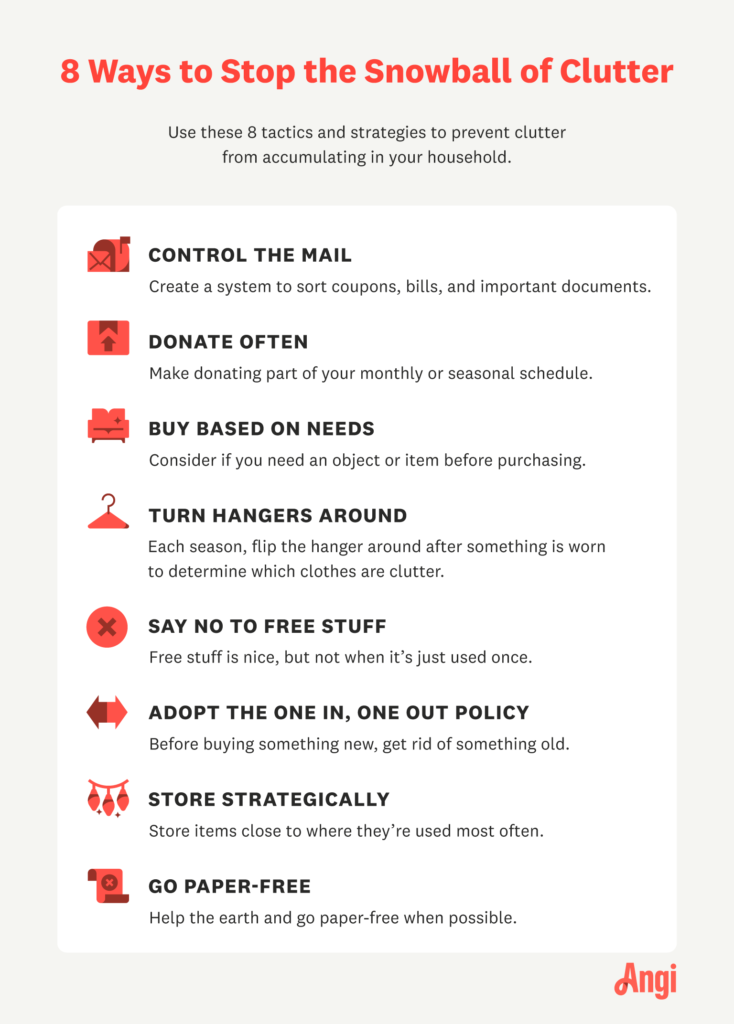
Get stories and expert advice on all things related to college and parenting.

There’s an old joke that college students can only choose two of the three: a social life, sleep or good grades. If you have good time management skills this adage isn’t true. However, most students are still working on these skills.
Another skill many college students (and recent graduates, too) need to work on is organization. Organization not only applies to the classroom or their first real job but also their dorm room, off-campus house or apartment.
The advice and tips below will help your college student or recent grad keep their space clutter-free. You may appreciate these tips as well!
To help, use these declutter checklists provided by Angi to categorize trash bags or bins which will hold your declutter until it’s properly taken care of.
Clutter is any object that doesn’t bring value or happiness to your life. Think of objects that are shoved in drawers, outfits that haven’t been worn in over a year, or items that you bought but never actually use.
For college students and young professionals, clutter not only takes up unnecessary space but can also be distracting. In fact, having a cluttered study or office space can affect the visual cortex, the area of the brain that processes visual information. This makes it difficult to focus on one task at a time.
Clutter can also cause unnecessary stress and anxiety. It can make living spaces feel smaller and can increase the presence of allergens and mold within the household.
Clothing goes in and out of fashion. In college, it can seem like this happens annually if not each semester. Encourage your student to remember the 80/20 rule when it comes to their clothes: You wear 20% of your clothing 80% of the time.
After each semester, unworn clothes should be sold to a thrift store or online, donated or trashed. Most college towns have thrift shops catering to students and selling their unwanted clothes will give your student's bank account a nice little boost.
These are the questions to ask when deciding whether to part with a piece a clothing:
Another place clutter often collects for young people is in their vehicle, especially if they live off campus. There might be a graveyard of fast food containers, coffee cups and plastic bottles in the back seat. Any remnants of food can attract ants and other insects.
Urge your student to clean out their vehicle — they just need a trash bag or two (so they can separate out the recyclables) and a pair of disposable gloves. They may find books, sport equipment and who knows what else that they no longer use and can donate, sell or throw away.
Then it's on to the nearest self-service car wash!
One way to keep clutter from accumulating in living spaces is to decide on permanent storage areas. If your student lives with roommates, suggest they get together before each semester to discuss where items will be stored in the household.
This might seem obvious, but a good tip is to store items close to the area where they'll be used. For instance, kitchen items should be stored in kitchen cabinets, a pantry, or the nearest closet. Throw pillows and blankets can be placed in baskets in the living room.
